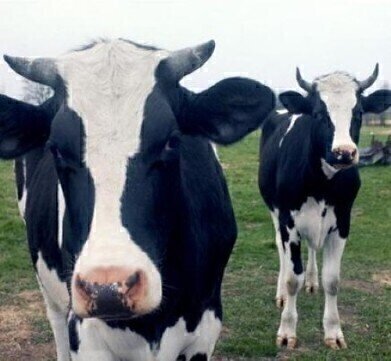-
 It is thought that the human version of the disease is caused by eating infected meat
It is thought that the human version of the disease is caused by eating infected meat
Microscopy & microtechniques
Number of human 'mad cow' carriers higher than previously thought
Oct 16 2013
The number of people in the UK carrying the human form of 'mad cow' disease could be higher than originally thought. A new study has revealed that around one in every 2,000 British people could be carrying the human variant of Creutzfeldt-Jakob disease (vCJD) proteins. The disease, also known as bovine spongiform encephalopathy (BSE), is thought to have been passed to humans via meat that was obtained from infected cattle.
A new study, published in the journal 'BMJ', has found that the number of people carrying the disease is likely to be higher than originally estimated. The disease, which first made an appearance in the UK in 1996, is a fatal degenerative brain illness that has resulted in 177 deaths in Britain, the majority of which occurred in the 1990s and early 2000s. In the last two years only one UK death has been linked to vCJD.
Carriers of vCJD may not develop the symptoms of the disease, as it is very rare for them to catch the infectious agent that results in the disease becoming active. As a result individuals could carry the disease for years without ever knowing. It is not known whether those that carry the disease are likely to transmit it through their blood.
To assess how many likely carriers of the fatal disease are in the UK, researchers analysed over 32,000 samples of appendix tissues from people in over 41 hospitals that had their appendix removed between the years 2000 and 2012. Some 16 of the samples tested positive for vCJD proteins, which works out as about 493 people per every million.
As well as the higher than expected numbers of infected tissue, it was found that the protein was almost the same in both women and men. It was also discovered that the disease did not have any significant differences related to age.
Although the research has helped to understand how many possible carriers there are in the UK, there are still many things that scientists are unclear on. Currently work is being done on the development of a screening process for vCJD to ensure that infected blood is not given to others via infusions. Some researchers have suggested that the disease may make a reappearance at some stage, although the number of affected people is likely to be small.
Digital Edition
Lab Asia Dec 2025
December 2025
Chromatography Articles- Cutting-edge sample preparation tools help laboratories to stay ahead of the curveMass Spectrometry & Spectroscopy Articles- Unlocking the complexity of metabolomics: Pushi...
View all digital editions
Events
Jan 21 2026 Tokyo, Japan
Jan 28 2026 Tokyo, Japan
Jan 29 2026 New Delhi, India
Feb 07 2026 Boston, MA, USA
Asia Pharma Expo/Asia Lab Expo
Feb 12 2026 Dhaka, Bangladesh
.jpg)
-(2).jpg)
















